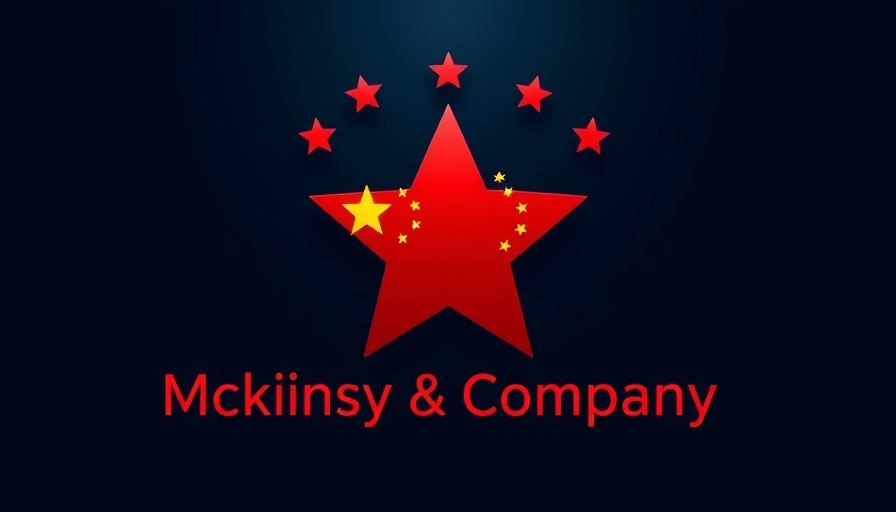
McKinsey's Strategic Decision Amid Rising Geopolitical Tensions
In a significant move that underscores the impact of geopolitical tensions, consulting giant McKinsey has imposed restrictions on its Chinese practice regarding the use of generative AI. This decision is rooted in an increasingly competitive and politically charged landscape, particularly as the U.S. and China navigate their complex relations. McKinsey's leaders, recognizing the risks associated with engaging in generative AI initiatives within China, aim to ensure compliance with international regulations and corporate responsibility protocols.
Why Generative AI Matters to Businesses
Generative AI is at the forefront of technological innovation, enabling businesses to create content, design products, and analyze data more efficiently. As firms in Silicon Valley and beyond harness this advancement, the technology promises to reshape business strategies and drive substantial growth. However, McKinsey's decision to limit its operations in China emphasizes the balancing act companies must perform between leveraging innovations and navigating regulatory landscapes. For Bay Area startups and established firms alike, this move could serve as a cautionary tale about potential risks in rapidly evolving markets.
The Bay Area Business Ecosystem and Its Response
For Bay Area entrepreneurs and tech industry leaders, receiving updates on such corporate decisions is crucial. Many startups are heavily reliant on technology trends and regulatory frameworks. McKinsey’s restriction may signal a broader shift toward more cautious approaches in business dealings with China. Furthermore, understanding the implications of global partnerships, business regulations updates, and how they resonate throughout local business ecosystems can shape future strategies.
Forecasting Future Trends in AI and Business
The AI landscape is developing rapidly and McKinsey’s move may indicate a wave of similar reactions from other firms. As consulting and tech companies begin to prioritize compliance and ethical considerations within their frameworks, firms in the Bay Area can benefit from being proactive. Emphasizing sustainability in business practices, fostering corporate social responsibility, and exploring venture capital funding aimed at responsible tech can bolster a business's position in a crowded marketplace.
Conclusion: Navigating Challenges and Opportunities
In an age defined by rapid digital transformation and evolving corporate cultures, understanding the implications of McKinsey’s strategic choices is pivotal. Business leaders and entrepreneurs must not only monitor these developments but also adapt their strategies accordingly, ensuring they remain resilient in the face of geopolitical fluctuations. Staying informed on trends in the tech industry, business growth strategies, and corporate governance can equip local businesses with the insights needed to thrive.
 Add Row
Add Row  Add
Add 



Write A Comment